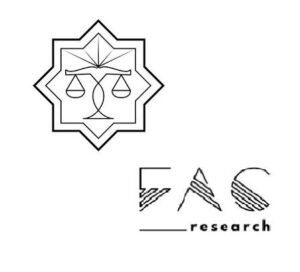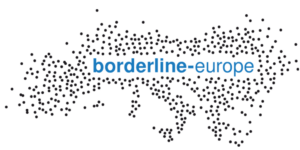 This report draws on operational and aggregated medical data, patient testimonies, and observations of staff that Medecins Sans Frontieres (MSF) gathered between August 2021 and July 2023. It builds on an existing body of accounts of violence and pushbacks at Greece’s borders, and highlights the physical and psychological suffering, as well as the life-threatening risks, endured by those seeking safety and protection in Greece.
This report draws on operational and aggregated medical data, patient testimonies, and observations of staff that Medecins Sans Frontieres (MSF) gathered between August 2021 and July 2023. It builds on an existing body of accounts of violence and pushbacks at Greece’s borders, and highlights the physical and psychological suffering, as well as the life-threatening risks, endured by those seeking safety and protection in Greece.
Category: Reports on Migration in Lesvos and the Aegean
XX/09/23 – Beyond Farmakonisi: The responsibility of the Greek Coast Guard for human rights violations at sea
 Refugee Support Aegean, and Pro Asyl report on the violations identified by the Court in the Farmakonisi case not being isolated, contrary to the view expressed by the Greek government before the Council of Europe. They point to systemic deficiencies accounting for broader breaches of the right to life and the prohibition of torture in the general course of Coast Guard operations on border protection and rescue, as well as in the context of criminal investigation of complaints. These issues have re-emerged in the aftermath of the Pylos shipwreck of 14 June 2023 that left 82 people dead and several hundred missing. The Council of Europe Commissioner for Human Rights has stressed that “the shipwreck of 14 June is unfortunately not an isolated incident” and urged for an effective investigation thereof.
Refugee Support Aegean, and Pro Asyl report on the violations identified by the Court in the Farmakonisi case not being isolated, contrary to the view expressed by the Greek government before the Council of Europe. They point to systemic deficiencies accounting for broader breaches of the right to life and the prohibition of torture in the general course of Coast Guard operations on border protection and rescue, as well as in the context of criminal investigation of complaints. These issues have re-emerged in the aftermath of the Pylos shipwreck of 14 June 2023 that left 82 people dead and several hundred missing. The Council of Europe Commissioner for Human Rights has stressed that “the shipwreck of 14 June is unfortunately not an isolated incident” and urged for an effective investigation thereof.
23/08/2023 – A Pandemic of Abuses
 Report by the Legal Centre Lesvos and the Feminist Autonomous Centre for research documents how Greece dismantled the right to asylum and normalised the violation of migrants’ rights throughout the COVID-19 pandemic in Lesvos.
Report by the Legal Centre Lesvos and the Feminist Autonomous Centre for research documents how Greece dismantled the right to asylum and normalised the violation of migrants’ rights throughout the COVID-19 pandemic in Lesvos.
XX/07/2023 – A Legal Vacuum. The Systematic Criminalisation of Migrants for Driving a Boat or Car to Greece
 This study by borderline-europe examines the reality of anti-smuggling efforts in Greece, analysing the current legal framework as well as its practical enforcement. It shows that instead of protecting the rights of smuggled migrants and asylum seekers, these policies criminalise them and expose them to long prison sentences with the accusation of smuggling, all simply for having crossed the border by boat or car. This is made possible both by the legal framework set up in Greece and the EU, which is formulated very broadly, and further reinforced by an implementation that is characterised by gross rights violations such as arbitrary arrests, torture, abuse, coercion, and lack of access to legal support and interpretation. Individuals are typically arrested immediately upon arrival, held in pre-trial detention for months, and have very limited options to defend themselves and access support. The trials that tackle these accusations are very short and flout basic standards of fairness. Consequently, people convicted of smuggling form the second largest group by crime in Greek prisons, with almost 90% of them being third-country nationals. Given the gravity and extent to which criminalization and related human rights violations take place, there is an urgent need to address this issue.
This study by borderline-europe examines the reality of anti-smuggling efforts in Greece, analysing the current legal framework as well as its practical enforcement. It shows that instead of protecting the rights of smuggled migrants and asylum seekers, these policies criminalise them and expose them to long prison sentences with the accusation of smuggling, all simply for having crossed the border by boat or car. This is made possible both by the legal framework set up in Greece and the EU, which is formulated very broadly, and further reinforced by an implementation that is characterised by gross rights violations such as arbitrary arrests, torture, abuse, coercion, and lack of access to legal support and interpretation. Individuals are typically arrested immediately upon arrival, held in pre-trial detention for months, and have very limited options to defend themselves and access support. The trials that tackle these accusations are very short and flout basic standards of fairness. Consequently, people convicted of smuggling form the second largest group by crime in Greek prisons, with almost 90% of them being third-country nationals. Given the gravity and extent to which criminalization and related human rights violations take place, there is an urgent need to address this issue.
XX/05/2023 – What is happening today in the refugee structures on the Aegean islands: Serious problems in the EU-funded structures
 Report of Refugee Support Aegean and Pro Asyl on how seven years after signing the toxic EU-Turkey “agreement”, the East Aegean islands remain “black holes” for the fundamental rights of applicants for international protection. According to recent data, arrivals had increased significantly in late 2022 and early 2023. At the same time, allegations of deterrence practices and informal forced returns (pushbacks) at maritime borders continue. In the Closed Controlled Access Centres (CCAC) in Samos, Kos and Leros – the construction of which was 100% financed by the European Union – as well as in those in Lesvos and Chios, asylum seekers and their children live in remote areas with disproportionate security and surveillance measures, facing reported violent behaviour by security authorities and with significant shortcomings in legal assistance, medical care and interpretation. Shortcomings can be observed even in basic necessities due to delays in competitions, the withdrawal of NGOs, but also due to delays in the provision of the monthly financial assistance allowances provided for asylum seekers.
Report of Refugee Support Aegean and Pro Asyl on how seven years after signing the toxic EU-Turkey “agreement”, the East Aegean islands remain “black holes” for the fundamental rights of applicants for international protection. According to recent data, arrivals had increased significantly in late 2022 and early 2023. At the same time, allegations of deterrence practices and informal forced returns (pushbacks) at maritime borders continue. In the Closed Controlled Access Centres (CCAC) in Samos, Kos and Leros – the construction of which was 100% financed by the European Union – as well as in those in Lesvos and Chios, asylum seekers and their children live in remote areas with disproportionate security and surveillance measures, facing reported violent behaviour by security authorities and with significant shortcomings in legal assistance, medical care and interpretation. Shortcomings can be observed even in basic necessities due to delays in competitions, the withdrawal of NGOs, but also due to delays in the provision of the monthly financial assistance allowances provided for asylum seekers.
30/03/2023 – Systemic deficiencies in the access of beneficiaries of international protection to documents and socio-economic rights
12/12/2022 – Submission of Legal Centre Lesvos to the UN Special Rapporteur on Torture
 Based on its own documentation and reporting, the Legal Centre Lesvos demonstrates in a recent submission to the UN Special Rapporteur on Torture that the illegal practice of systematic pushbacks in the Aegean region amount to torture, both under international and Greek law.
Based on its own documentation and reporting, the Legal Centre Lesvos demonstrates in a recent submission to the UN Special Rapporteur on Torture that the illegal practice of systematic pushbacks in the Aegean region amount to torture, both under international and Greek law.
XX/09/2022 – The State of Border Procedure on the Greek Islands
Τhis report by Equal Rights Beyond Borders, HIAS, Refugee Support Aegean, Danish Refugee Council and Pro Asyl, examines the workings of border procedures implemented on the Greek islands from June 2021 to June 2022, revealing new concerns tied to poor quality of asylum procedures and to breaches of fundamental rights. These add to an abundant body of international criticism of the Greek asylum system and merit close scrutiny, not least in the context of ongoing EU-level negotiations on the reform of the Common European Asylum System.
XX/06/2022 – Relocation from Greece to Germany: Relief for the Hotspot System or Alibi Policy?
In this report, borderline-europe, Borderline Sicilia, Flüchtlingsrat Berlin, Sea-Watch and Equal Rights Beyond Borders. critically examine the ‘solidarity’ solution propagated by the EU for the arrival and redistribution of people detained in so-called hot-spot camps in Greece. They focus on the extent to which this procedure allows people seeking protection to preserve their autonomy as well as to escape situations of extreme insecurity. What does relocation offer people seeking protection within the EU to arrive and build a future? Does European asylum policy also relieve the burden on asylum seekers or is relocation exclusively about relieving the burden on EU member states that
are located at an external border of the Schengen area due to the Dublin Regulation?



